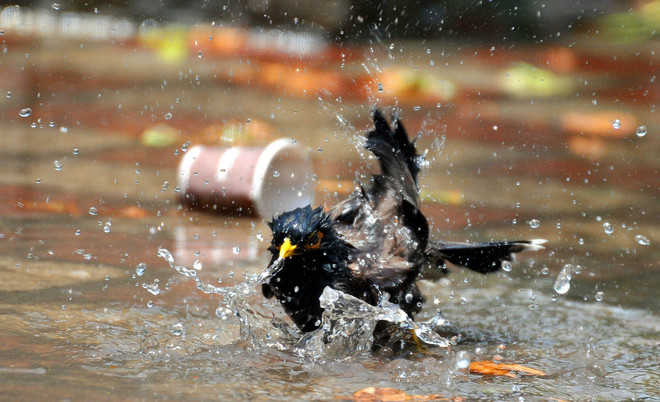
Ambika Sharma
Tribune News Service
Solan, June 13
With the maximum and minimum temperatures soaring, the crop yield (fruits and vegetables) is likely to witness a loss of 10 to 40 per cent in the region.
Solan has witnessed the highest temperature of 37.5 degrees C and lowest of 20 degrees C this season, which was among the highest temperatures recorded in the recent years, according to scientists of Dr YS Parmar University of Horticulture and Forestry, Nauni. The area abounds in the cultivation of tomatoes, off-season vegetables and stone fruits. Tomato is grown over 6,609 hectares in Solan and Sirmaur, which is nearly 65 per cent of the state’s share.
“Tomato plants have wilted in the high temperature prevailing in Solan due to lack of water availability,” Manish Kumar a farmer from Deothi village, said.
Dr Satish Bhardwaj, head of the Department of Environmental Sciences, said all crops had a certain natural threshold limit of climatic components beyond which they did not grow normally. Kharif crops grown in summer required about 18-20 degrees C night and 25 to 30 degrees C day temperatures during sowing.
“An increase in temperatures raises the physiological processes such as photosynthesis in plants to an upper limit and it also causes water scarcity, which adversely hits production of crops. As per the recent report of the Inter-Governmental Panel on Climate Change and other global studies, the probability of 10 to 40 per cent loss in crop production can occur in the coming years if the current management continues to be followed and a few or nil adaptive measures are put in place by the stakeholders,” Bhardwaj said.
High temperature affects the phenology of various fruit crops and it has been observed that flowering, pollination and fruit set of tomatoes and peppers can be adversely affected by extreme temperatures. The optimum range for the growth of tomato and pepper is 18-26 degrees C and if the temperature increases beyond 35 degrees C, it affects the fruit set, while if the temperature goes beyond 32 degrees C, pollen sterility occurs and flowers may also drop in pepper. Similarly, an increase in temperature beyond the optimum range causes delayed curd initiation in cauliflower, while if the temperature goes beyond 40 degrees C, the bulb size onion is reduced.
In most fruit crops, the higher temperature generally decreases the interval required for flowering and if the temperature is low, it requires more days for flowering. In apricot, which is one of the main stone fruits of Solan, the pistil size is reduced at a higher temperature, leading to abnormal flowers and reduced fruit set, thus hitting the yield.



























